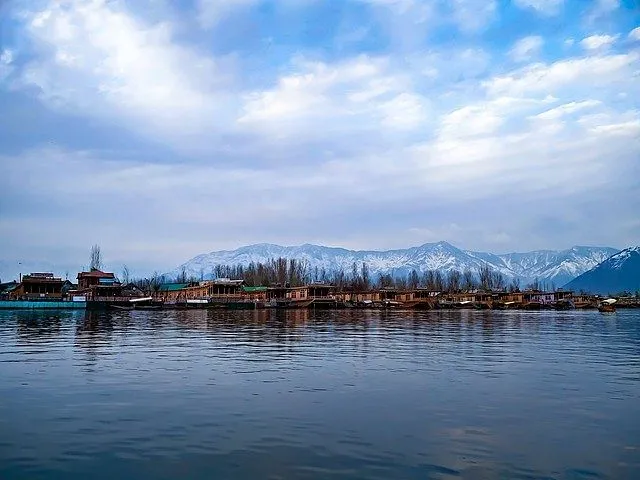The Covid19 has been described by many in different ways. But I feel to perceive this phenomenon as the biggest natural experiment the world has ever witnessed. In fact, exploring the evolution, differential context and the dynamics of this global crisis is the sure means to understand and absorb lessons caused by this crisis for the continuance and well-being of life. The future regional, national and global policies for facing any repeat challenge of similar crises and enable the social to function and perform for enhanced well-being have necessarily to be founded on this understanding of the learned lessons; the use of the term social – rather than political or economic – is intentional as the pandemic has reaffirmed the primacy of social over any other dimension in human existence besides the very inclusiveness of it when it comes to continuance and well-being of lives on this planet.
We all grew up with the learning in our schools that “Health is Wealth” but the fundamental path of human trajectory during the phases after the First Industrial Revolution has all but ignored the qualitative components of this dictum. This ignoring or rather disrespect to the social orientation of this health aspect of the dictum has led to the present crisis which has forced the world to value self and society simultaneously in the absolutely interrelated frame.
Further the pandemic has re-established the significance of a robust convergence between theory and practice of any of our disciplines for study; theory is important for the positive implications for practice and not otherwise. In a way, the pandemic reminds of what a Alcock, Payne and Sullivan wrote in 1974: “Social policy as an academic field of study is one of those curious items, rather like an elephant, which we recognise when we see it, but which is notoriously difficult to describe.” This is where the primacy of inter-connective functioning and existence arises. The practice of isolated pride and egotism of different disciplines have only led to the present exposure of their isolated weaknesses.
Further, the pandemic has reasserted the need to be conscious and practise the moral principles of existence within the inevitable social framework. This pre-eminence of the moral principles leads us to a kind of understanding the imperative for adopting stakeholder approach to whatever the social agents engage in and perform. This principle of stake-holding applies to individuals as individuals as well as family members, to educational institutions and all those serving a purpose therein, to clubs and organisations and to governments. Everything and everybody in the society has a stake in the functioning and continuance of the society. The attendance to this responsibility has to be necessarily founded on moral principles.
Now we have before us three criteria establishing interconnectedness– society, morality and state-holder. All future policies – education, health, defence, and what not – have to satisfy the needs of these criteria. The pandemic has established that unless the whole world is free from the disease as a whole, the safety at any place and society of that place can never ensure the safety of the world permanently. It has also been shown that the disease can have differential manifestations and impact even within small regions. In other words, the geographic characteristics and institutional environment can make a difference to the impact of the disease. Further, these contextual differentials surprisingly emphasise the simultaneous linking up of the responses being made elsewhere.
Now all these features tell us a full story. Every society and any social policy intervention anywhere have to satisfy certain conditions to be ever-ready to face any unprecedented risks arising. First, the policy has to be contextually evolved. Second, the policy should be alive to the differential features of the governing unit; this includes the geographic and the institutional differentials. Third, the coordinating orientation and capability of the policy right from the local to the global level should be robust.
These are elements which demand demystification of the policy approach and formulation we are used to. Let me explain the framework in the context of the Kashmir region, which I really pray to regain the name of Paradise on Earth. While preparing the evolution into the next phase of well-being, we have to evolve a strategy for adopting stakeholder approach, contextualisation and coordinating framework. The Pandemic has given an opportunity for evolving an altogether new framework for governance. To begin with, let us now evolve all the educational institutions in the region to examine the differential geographic and institutional manifestations of the pandemic; this will form a component foundation for evolving social sector policies. Second, let us also fully explore the relative differential effectiveness of the responses to the pandemic by involving the health sector professionals. Third, let us also make the security forces come up with a report on the relative security challenges during the pandemic. Similarly, we can request all other stakeholders significant for the Kashmir region to come up with their understanding of their own challenges.
All these stakeholder reports should contain suggestions for evolving adequate responses to address the weaknesses. On the bases of these reports, we can have a detailed coordinated approach to policies addressing the contextual challenges. While converting the policies into actions, we can have mechanisms incorporated for two evaluation systems for performance measurement, one for the stakeholders and another for the collective social as well. Such an approach would have the characteristics of involvement and accountability incorporated for a healthier social in which the well-being for all is ensured.
There might not much new idea in what I am writing. But we must accept the fact that the pandemic has given us to reorient our governance approach, and look for something more secured and capable. Within this approach, we can evolve youth, employment and other implementable policies. We shall come to these in the next few weeks.






